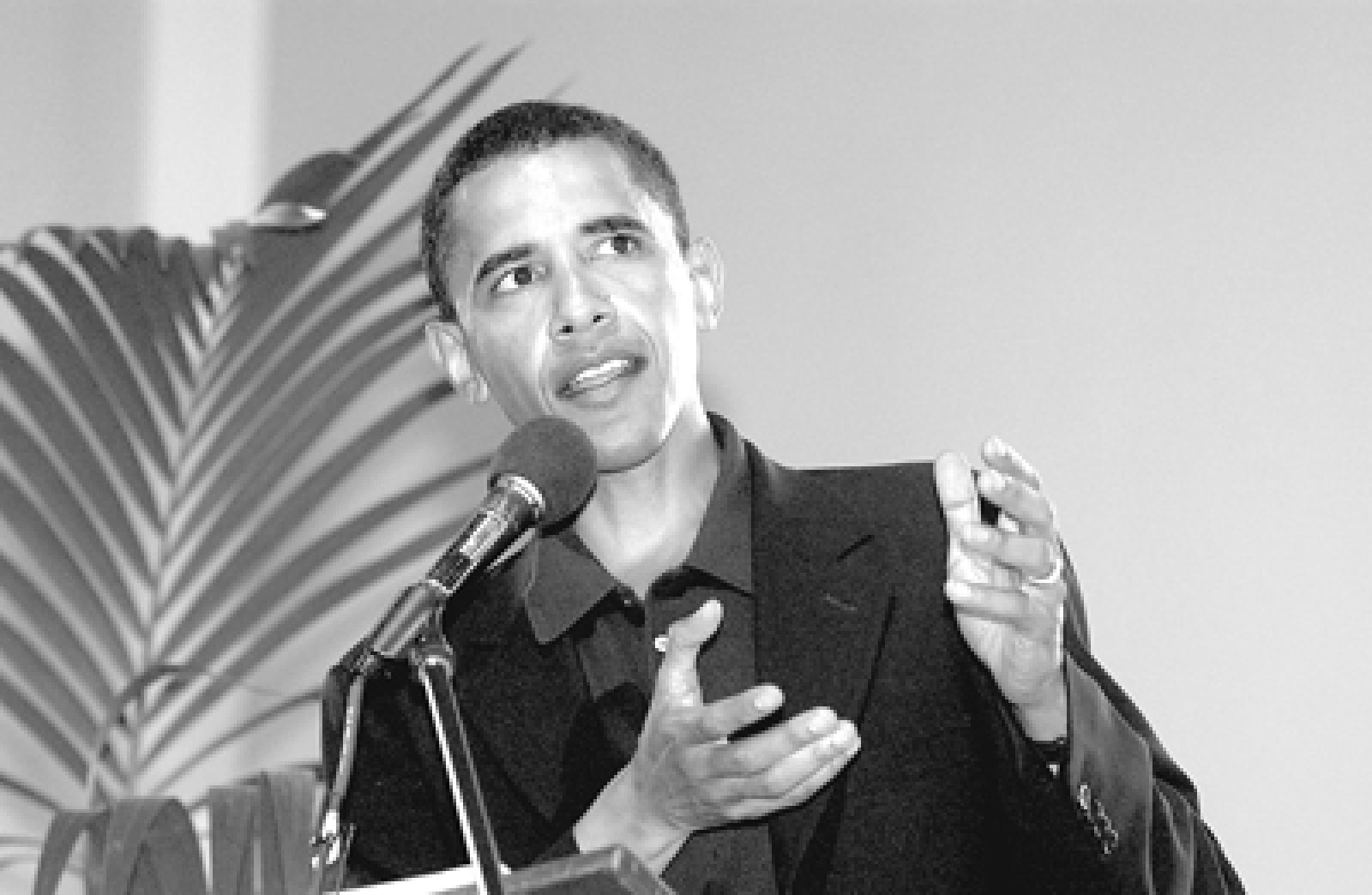The old America I knew took a hike last week and a new America emerged before my unbelieving eyes at approximately 9:30 in the evening. That was the hour my belief system was turned upside-down, when Barack Obama was projected to win the Iowa caucuses and it was extraordinary.
Coming of age in the late 1950s I was the 13-year-old girl who wrote an essay in the Lions Club contest titled Why I Love America, but was denied entry into the Brown Hotel in Louisville, Ky., to receive my prize. The luncheon was moved to the Sealback Hotel, I received my prize and Time Magazine carried the story. This experience and others over a lifetime had rendered me simply incapable of believing that white Iowans would vote overwhelmingly for a black candidate to be President of the United States, not because he was unworthy, but because everything in my experience has shown that in many instances no matter how qualified the person, being black often weighs more heavily than qualifications.
New Hampshire was the reality check that brought me back to those long held beliefs when the scientific polls worked for all candidates except Barack Obama and Hillary Clinton. The pundits rather than the voters who supplied the data were held suspect. What a disconnect between what people told the pollsters and what they did when they entered the ballot box. Was I disillusioned? Indeed not. Mr. Obama’s win in Iowa and near win in New Hampshire proves that a black candidate can get white votes at presidential level politics. The American political horizon is changing to become more inclusive, and this says something about the country’s coming of age in racial politics.
Mr. Obama’s ascendancy as a serious presidential contender represents a tectonic shift in American racial politics and perhaps a psychological shift as well in white America’s willingness to look beyond the color of one’s skin, but at the content of their character, a race neutral society that Dr. Martin Luther King Jr. dreamed of. In this case, Mr. Obama’s sincerity, confidence, organizing skills and the quality of his preparedness propelled him to victory in Iowa and will be key to future success.
But let’s be clear, in spite of his powerful finish in Iowa he can expect the New Hampshire experience to replicate across the nation. It’s called the Bradley Effect, based upon Tom Bradley’s narrow and unexpected loss in California’s 1982 gubernatorial race. There is sufficient data from high profile races to show that entry and exit polling are less reliable for black candidates than whites. Why? Because many white voters who tell pollsters they will vote for the black candidate do not, regardless of political affiliation. That was true in 1981 for Doug Wilder’s gubernatorial race in Virginia; in 1990 for Harvey Gant who ran for U.S. Senator of North Carolina; and in 1989 for David Dinkins’ mayoral race in New York. All received projections far exceeding the actual vote based upon entry and exit polling.
I have followed Barack Obama since his inspiring speech at the 2004 Democratic National Convention and closely over the past three years — from his initial visit to Martha’s Vineyard in 2004 and again in 2007. His remarkable success is based upon an inspiring, nonpartisan, transformational leadership style that has eluded other candidates. His candidacy emerges in non-racial terms and represents a new kind of leadership — one of enormous magnetism and authenticity capable of moving a bereft nation forward to regain its rightful place on the world stage after eight years of dismal leadership which has resulted in two unresolved wars, a still unstable Middle East, the consequence of which is a diminution of the national interests from trade to defense, and a loss of our historical good will around the world.
The next president must have a vision for righting the nation — one that brings relevant experience, judgment and vision to the table, crossing lines of race, gender, political party and that intangible something which taps into the greatest instincts of a country hungry for change and leaders that they can both believe and believe in, authentic leaders who they sense care about their needs and are willing to take risks to act on their behalf. This yearning could be seen in the eyes of Obama supporters during his riveting post Iowa and New Hampshire speeches where he connected with this need and delivered.
As a reform candidate Mr. Obama moves toward the general election against the establishment candidate. His resiliency will be tested as he counters the experience argument and challenges the polarizing politics of the 1990s that continues today. It is good to remember that Abraham Lincoln had little experience; Richard Nixon had much. If experience alone is the governing qualification on the Democratic side, Richardson, Biden or Dodd would still be in the race. It is not experience in the traditional sense that Obama supporters seek. It is judgment, toughness in the face of adversity, and experience in bringing people together to solve a plethora of contentious problems that will not go away. Should Mr. Obama win the Democratic party nomination it will be nothing short of a tectonic shift in the political life of the nation.
Bettye F. Baker lives in Oak Bluffs and Gettysburg, Pa., and writes the Oak Bluffs column for the Gazette in the summer.




Comments
Comment policy »